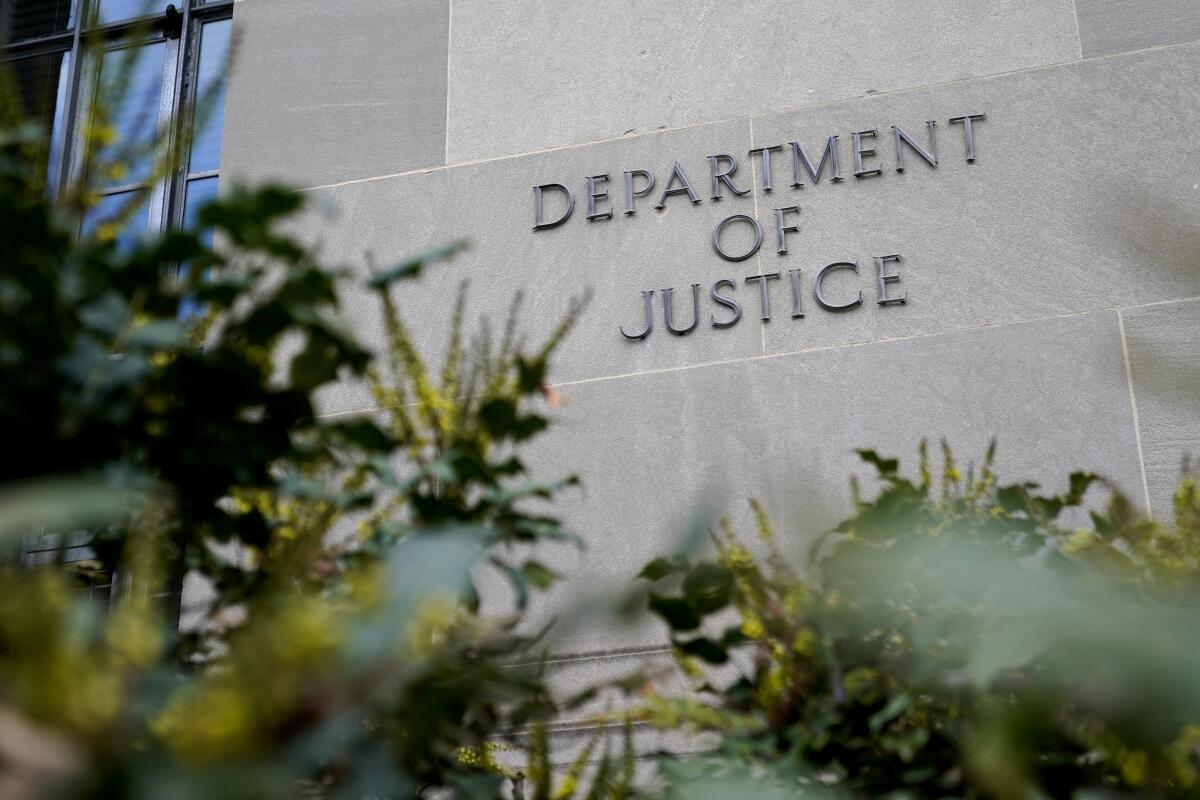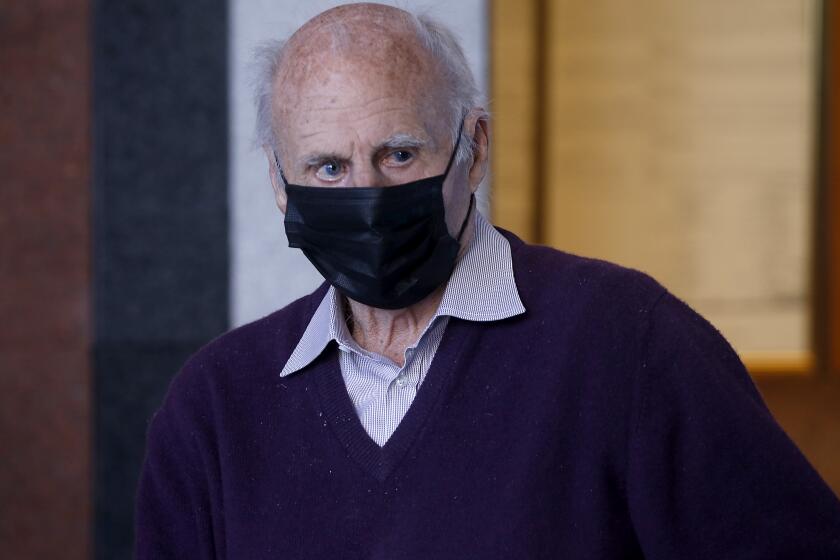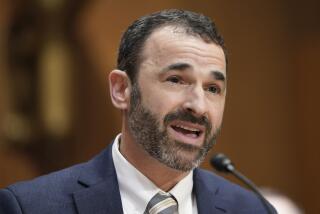Justice Dept. pushes companies to punish white-collar crime by clawing back exec pay

Companies found to have committed crimes will get reduced fines from the U.S. Department of Justice if they act to claw back compensation paid to executives and employees responsible for misconduct, Deputy Atty. Gen. Lisa Monaco said.
The department also will require every company that reaches a resolution with its criminal division to structure its compensation and bonus programs so that bad behaviors will be punished, Monaco said Thursday at a conference in Miami on white-collar crime.
“Companies should ensure that executives and employees are personally invested in promoting compliance,” Monaco said. “Nothing grabs attention or demands personal investment like having skin in the game, through direct and tangible financial incentives.”
The moves are part of a three-year test program announced Thursday under a larger effort kicked off in September aimed at prodding companies to police themselves, voluntarily report misconduct and improve compliance programs. Monaco moved earlier to allow more companies that voluntarily report misconduct to avoid pleading guilty.
The intention behind the latest move is “to use compensation systems to drive conduct,” said Marshall Miller, a top aide to Monaco.
Girardi, 83, sat stone-faced as a magistrate judge, a prosecutor and two public defenders appointed to represent him discussed his mental health.
“This is almost like an extra-credit program for those that want to pursue it,” Miller said in an interview. “And we think it creates incentives which will cause executives, boards and their outside counsel to see this as a more viable option than they do currently.”
The department won’t increase punishments for companies that can’t pursue compensation clawbacks if laws in their home countries prevent them, among other restrictions, Miller said.
Monaco said federal prosecutors are aware how difficult it can be for companies to decide the proper lines for doing clawbacks or coming forward to the Justice Department.
For example, companies have questions about which employees should be held liable for wrongdoing and subject to clawbacks. Monaco said those responsible should include the wrongdoers and supervisors who had knowledge of the activity or were willfully blind.
“We’re very aware and attune to the danger of misuse of a clawback policy,” Monaco said. “We recognize that these are very difficult decisions.”
Despite pandemic closures and more shareholder votes against their pay, CEO compensation keeps soaring. But there are signs the backlash is working.
On another front, Monaco said the department will beef up the national security division’s ability to enforce violations of export controls and sanctions, including by hiring 25 new prosecutors. She said the move is intended to address “a troubling trend” around “the intersection of corporate crime and national security.”
“In today’s complex and geopolitical — very uncertain frankly — geopolitical environment, corporate crime and national security are overlapping to a degree never seen before, and the department is retooling to meet that challenge,” Monaco said.
She added, “Stay tuned for announcements of some significant cases in the coming weeks that implicate this troubling trend.”
More to Read
Inside the business of entertainment
The Wide Shot brings you news, analysis and insights on everything from streaming wars to production — and what it all means for the future.
You may occasionally receive promotional content from the Los Angeles Times.









